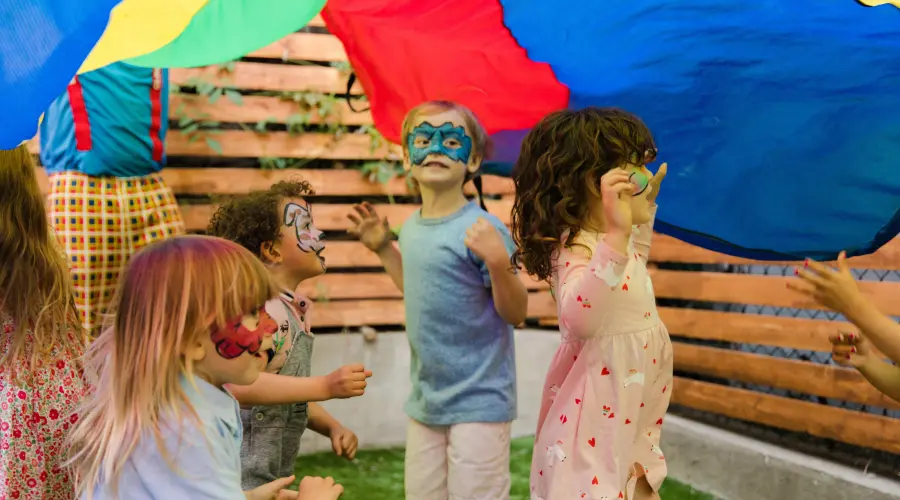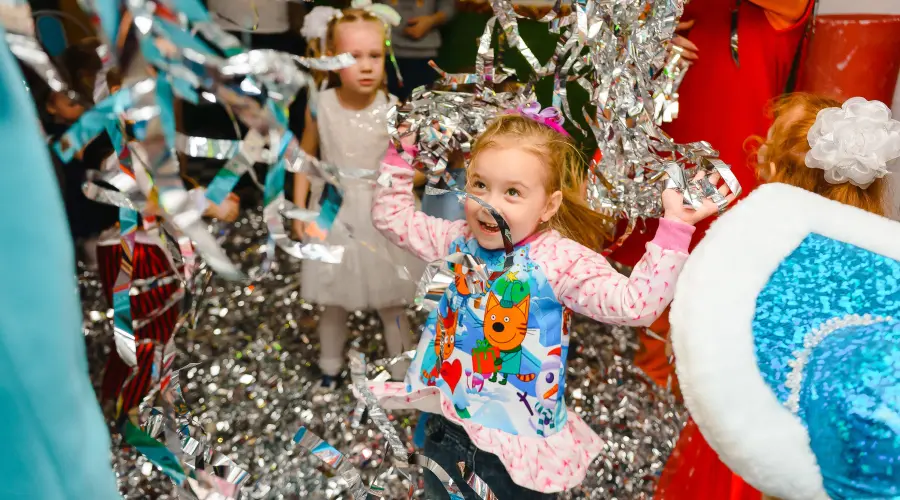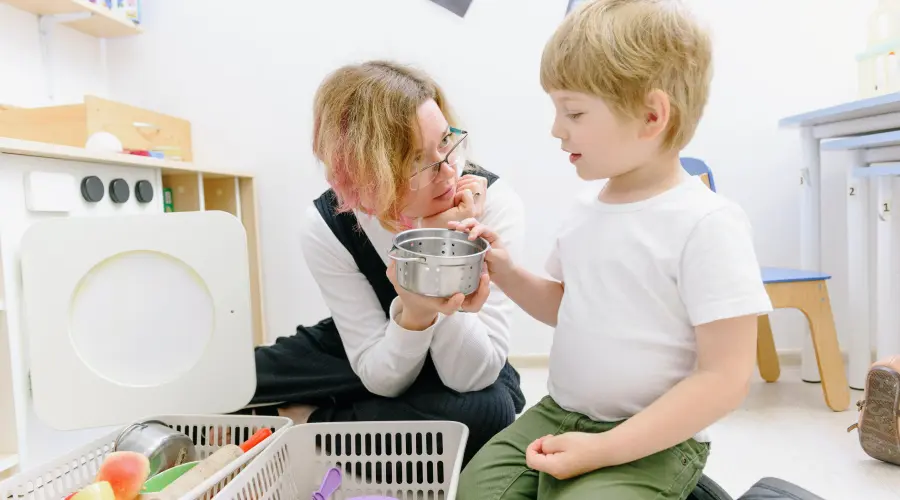settings
children
With Famly since
In the early years we can’t get enough of parent partnerships. Having a willing parent or grandparent volunteer come in to support little learners can be incredibly valuable, both for the volunteer, the children they work with, and your setting. But there are caveats we have to keep in mind.
As we can’t take a classroom volunteer into our ratios, leave them with children alone, it’s important we have a plan for how they can contribute, while keeping everyone comfortable and safe. Unfortunately, it can sometimes feel like an addition to our workload to find something for them to get stuck into.
So what are the best ways to make use of parent and family volunteers and how can we ensure this really maximises home-setting partnerships? Well, we’ve gatherered some great activities to get volunteers involved, as well as some tips for how this can strengthen your connections with families in your setting.
Let’s take a look…

Get volunteers involved in some messy play
This one will very much depend on the inclination of parents and family members, but a messy play activity can be wonderful for getting volunteers engaged. Just make sure the parent or carer knows that’s what they’ll be up to so they can prepare (or dress) accordingly!
Messy play offers plenty of opportunity for new vocabulary, social interaction and sensory exploration, little ones are sure to flock to a messy play station and get involved with the new adult, and get plenty out of it too.
If it’s appropriate, you could even encourage parents to take photos for practitioners to later upload with captions, getting them engaged with nursery technology and recognising the value of documenting learning.
Storytime with someone new
Readers are born on the laps of their parents - so why not ask your volunteers to join in with storytelling and reading? Having an additional adult to share stories and reading activities with children can dramatically boost your literacy provision, while also reminding parents of the importance of sharing texts with little ones.
If helpers are confident enough, they might like to share a particular story with a group of children, or, if they are a little less confident, they might like to simply set themselves up in the reading corner and get engaged with simple literacy activities.

Time to talk with friends and family
A fantastic way to engage families in your nursery community is by asking them to come in and deliver a talk or activity focused on a particular skill they have, or life experience they can share. A common idea around this is inviting parents in who have a particularly interesting occupation or life skill.
Common familiar roles would be around the ‘people who help us’ topic - anything from a vet to a doctor, teacher or traffic warden! Parents or family members may be able to attend in their work uniform and show small groups of children what their job is like.
This doesn’t need to be confined to work roles, though. Parents with a new baby might be willing to visit and show older children how they care for their little one - or parents with a particular skill like sewing or sport may be able to join you and show little ones a simplified version of their hobby.
Any of these methods are bound to spark imitative role play, construction play and crafting afterwards while giving parents and family members a real boost.

Someone from home in the home corner
As with giving talks about professions or hobbies, asking parents to focus their attention on the home corner can really maximise learning from their individual life experiences. If they feel comfortable, they could use the materials available in the home corner to talk to children about what each of their families are like, and how their family is similar or different.
Topics of conversation might include:
- Who lives at their home
- Extended family,
- Siblings
- Pets
- Differences between living in urban and rural areas
- Favourite foods or dishes that they cook in their home, and whether the children are familiar with these.
It might be worth discussing any areas in advance that you would prefer not to be covered if there are any sensitive issues in your cohort.
Volunteers can help with organising events
Another great way to engage volunteering parents and carers is at a time you really need a helping hand - big events and parties!
If your setting has regular events around calendar days, such as Eid, Easter, or Christmas, engaging willing family members to support the day is a fantastic way to get them involved. Plus, it means you can keep all hands on deck, while giving volunteers a purposeful role.
Parent involvement during events will be highly visible to families across your setting, potentially creating a feedback loop of more willing volunteers. Why not ask parents and grandparents to run a particular activity around the theme of your event, such as a crafting activity or a group story?
And, for those who’d prefer to help out behind-the-scenes, why not offer a more administrative role, such as taking tickets or supporting donations to the setting.

Get parents and carers exploring the great outdoors
Getting outdoors is a vital aspect of early years provision and is likely already naturally embedded in your everyday. Why not, then, encourage parents and families to also recognise the importance of this aspect of the EYFS curriculum, and get them stuck in with your outdoor area?
Perhaps encourage them to join in with the children’s play in a particular area, such as a mud kitchen or construction area, or alternatively, if they’re confident to, have them move between different stations to chat to different children. Ask them afterwards what area they found the most enjoyable to be in!
These are just a few simple ways to engage family and parent volunteers. There will always be plenty more, and the effectiveness of each idea will of course be dependent on your setting and the age and stage of your learners. We hope they inspire you to get families engaged and support you in building your EYFS community.
The big ideas
Top tips from Alphabet House
Get top tips from a setting just like yours. Hear from Alphabet House on why and how they use Famly - and why they’ve never looked back.
Read their story









